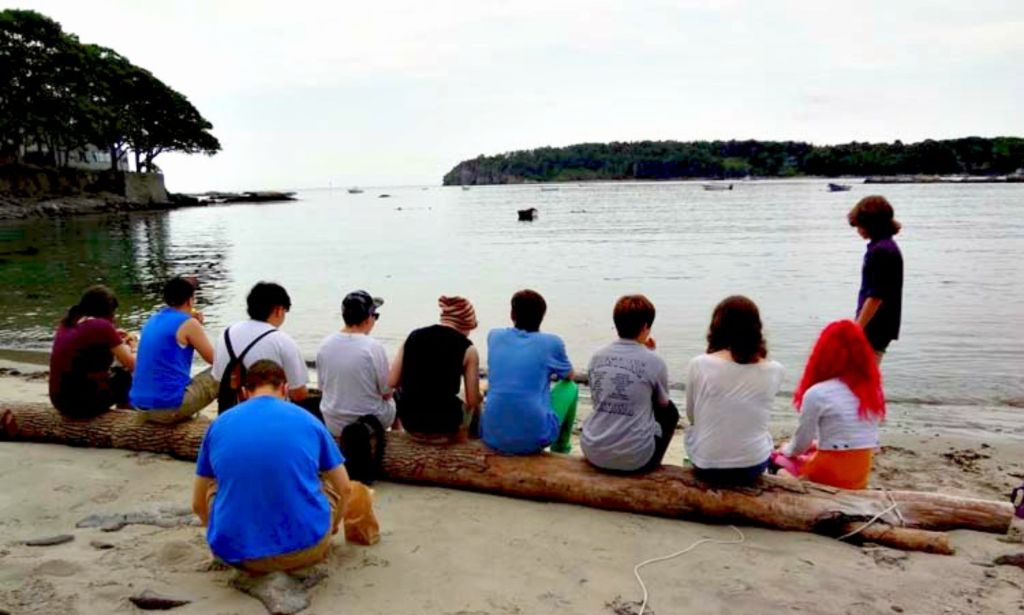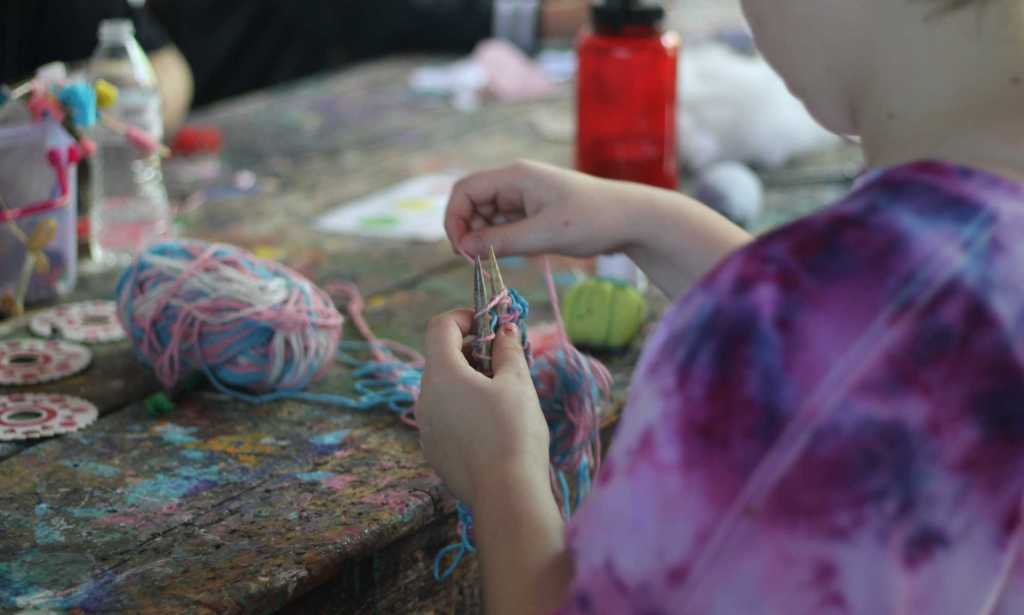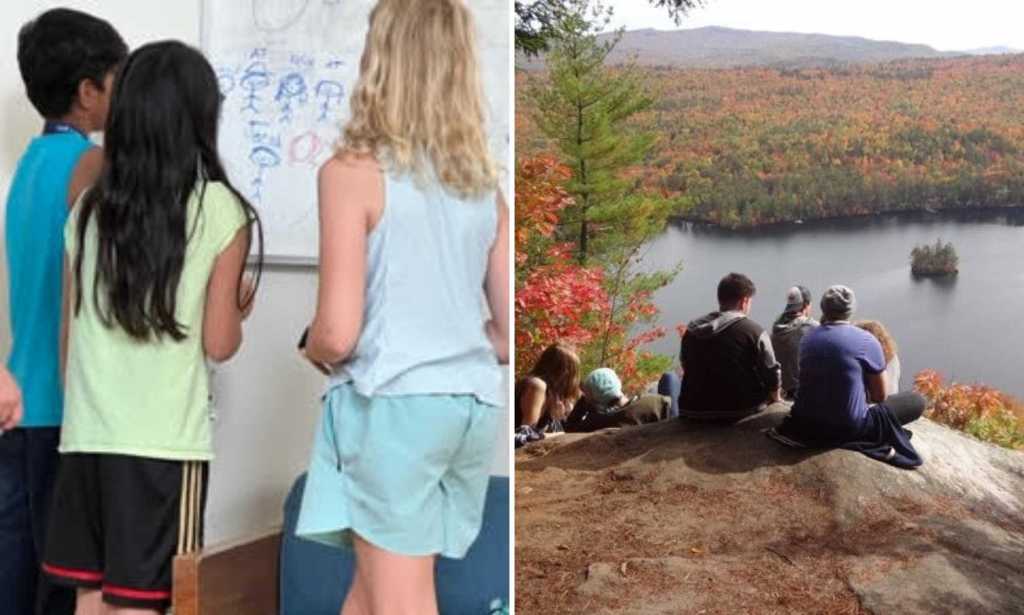Our job is to give them hope’
Camp is a staple part of a lot of children’s summers. Between going on hikes, kayaking, swimming and arts and crafts, they get to learn new skills, build their confidence and make new friends.
For trans youngsters though, traditional camps can be a daunting place, with many organisations inexperienced in supporting the specific needs of gender-diverse youth and unaware of the risk of prejudice they could face.
However, there are a few camps across the US tackling this by offering safe and affirming spaces specifically for transgender kids, where they can have fun while still being their authentic selves.
To mark Transgender Day of Visibility on Sunday (31 March), PinkNews spoke to staff from the Trans Youth Equality Foundation’s TYEF Camp and Camp Lilac about their work and why giving trans youth a place where they can come together is vital amid rising transphobia and the politicisation of transgender lives.
Susan Maasch, the founder of the Trans Youth Equality Foundation, runs TYEF Camp in New England, which takes kids aged between the ages of 6 and 16 on an overnight retreat at the end of July.
As part of our Transgender Day of Visibility coverage, she said that what makes their camp so special is how welcoming it is.
“It’s a unique experience for a trans child to be able to be in an environment that is all trans. It’s really special because these kids will say they don’t always feel welcome in other camps. Maybe [other camps] don’t have great policies in place and maybe they are afraid that they’ll be bullied if they’re in a space with a lot of non-transgender kids.”

This is echoed by Connor Mahon, of Camp Lilac – which takes teenagers between 13 and 17 – who said campers who stay with them “have the freedom to discuss their experiences and identities with people who understand them”, alongside just enjoying camp activities and being “free from having to explain or justify their existence”.
For the campers, the experience of being around other trans people – both peers and adults – even for just a few days, is invaluable for seeing a future for themselves.
“Nearly all our campers spoke about the value of community and meeting people like them,” Mahon said of the feedback Camp Lilac has had. “Many of them come from schools or areas where they are one of just a few, or even the only transgender person.
“This can lead to feelings of isolation, but finding others with similar experiences helps greatly.
“Campers also frequently tell us that they had never met a transgender adult before attending Camp Lilac. Seeing someone just like them who has made it to adulthood helps them picture their own successful future, which can be life-changing in light of the concerning data on the mental health of transgender and gender-diverse young people.”
Mahon went on to say that one parent of a camper described how their child was always “stuck in self-defence mode” because of the difficult environment they faced at school.
“At camp, these walls come down, and campers can make deeper connections with peers and grow tremendously as individuals,” Mahon said.

These connections and experiences are not just limited to attending camp itself.
Maasch spoke passionately about how the team at TYEF stay in touch with all their campers, fostering a wider community and sense of found family beyond the few days they spend together in the summer.
A testament to this is the fact campers who attended the first TYEF camp in 2008, who are now in their mid to late-twenties, have stayed in touch with the organisation and the friends they made.
Of course, all the positives these camps bring to these kids’ lives do not exist in a vacuum and are set against a backdrop of heightened political tensions around trans lives, particularly in the context of the upcoming presidential election, where transgender and wider LGBTQ+ rights will be a contentious battleground.
Over the nearly 20 years that EYEF has been running, Maasch has seen the political landscape shift and change, but in 2024 she is sensing anxiety from campers, parents and allies about where the next attack is going to come from.
“The anti-trans movement is very motivated, very ugly, and we’re always trying to give [the campers] hope, and fight for what’s right,” she said.
“The problem is that [the campers] are finding that when you listen to the rhetoric of the anti-trans movement, their peers in schools are hearing it too and it’s giving them permission to feel they could bully you and push you around.”

As an organisation, Trans Youth Equality Foundation recently faced the vitriol of this transphobic movement when Maasch was targeted online. This resulted in abusive messages on social media and the organisation having to pay for a new security system.
It is for this reason, among many others, that the organisation does not reveal the location of its camp until a camper is signed up to attend. It only takes “one bad person, and there a lot of them out there” to pose a threat to campers and staff.
Similarly, at Camp Lilac, safety has always been of the utmost importance.
“It’s been a little bit of a rough time lately,” Mahon admitted, “but we have to wake up every morning, do this work, be hopeful and convey hope to these kids and their parents.”
Explaining how others can support trans youth, he added: “No matter what you do, it’s important to be vocal and visible.
“Supporting the trans and gender-diverse community publicly helps counteract the negativity often seen online. It also helps trans people in your life feel supported, and encourages other allies to join you in making a difference for trans rights.”
TYEF Camp takes place from 26 to 28 July. Camp Lilac runs its first session between 21 and 27 July, and the second from 28 July until 3 August.







